We develop the key enabling technologies for sustainability & circular economy. These technologies make it possible to close the anthropogenic material cycles of carbon, minerals and metals independently of fossil sources and energies.These technologies enable compact, efficient applications in energy, industry, research, and mobility for society in times of climate crisis.
Resource and Energy Efficiency
Resources and Energy Efficiency develops and evaluates resource- and energy-efficient
technologies and concepts for metal-, mineral- and carbon-rich resources, superconductive
energy applications, and energy-intensive industrial processes in order to contribute to a future climate-neutral (carbon-neutral) circular economy.
One of the keys for a sustainable future of human society will be the sustainable use of resources.
Yet, this is a particularly challenging task especially as resources and energy are inextricably linked in the circular economy (CE). The resources life cycle supplies all materials and feedstocks to meet society‘s need of primary (i.e. geogenic or biogenic) or secondary (i.e. end-of-life or anthropogenic) resources. This includes materials needed to establish and maintain the infrastructure of the renewable energy system of the future. In return, the energy system supplies the power to drive the global system of material flows. Beneficial interaction of these systems is especially necessary due to the inherently fluctuating nature of dominating renewable energy sources (i.e. sun and wind) requiring maximum flexibility and energy efficiency of energy intensive industries.
Today, Germany’s industrial sector is responsible for ca. 30 % of the national energy demand including more than 40 % of Germany’s electrical power consumption.
The Topic “Resource and Energy Efficiency” thus has its focus on the nexus between energy and resource systems, providing solutions for a sustainable CE within the context of an energy system based on renewable energy sources as stipulated by the UN Sustainable Development Goals #7, 11 and 12.
The topic has the goal to maximize resource and energy efficiency by, among others, closing raw material loops, using currently unutilized residues and wastes as resources while maximizing energy efficiency. This includes the embodied energy (i.e. exergy) of the infrastructure built to sustain society. In other words, waste creation will be minimized to the level that it makes techno-economic sense – while taking into account the hierarchical approach to waste (prevent, re-use, recycle, recover, disposal) in the Circular Economy package of the European Union.



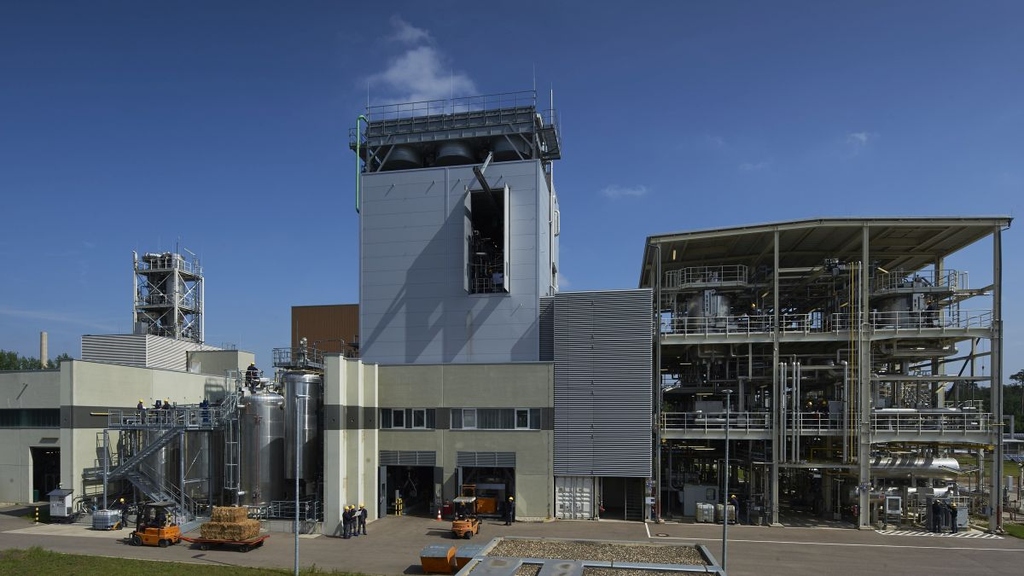
In the GreenFeed research project, KIT and partners developed strategies for a climate-neutral chemical industry. We have summarized the results in a technology roadmap.
KIT news in German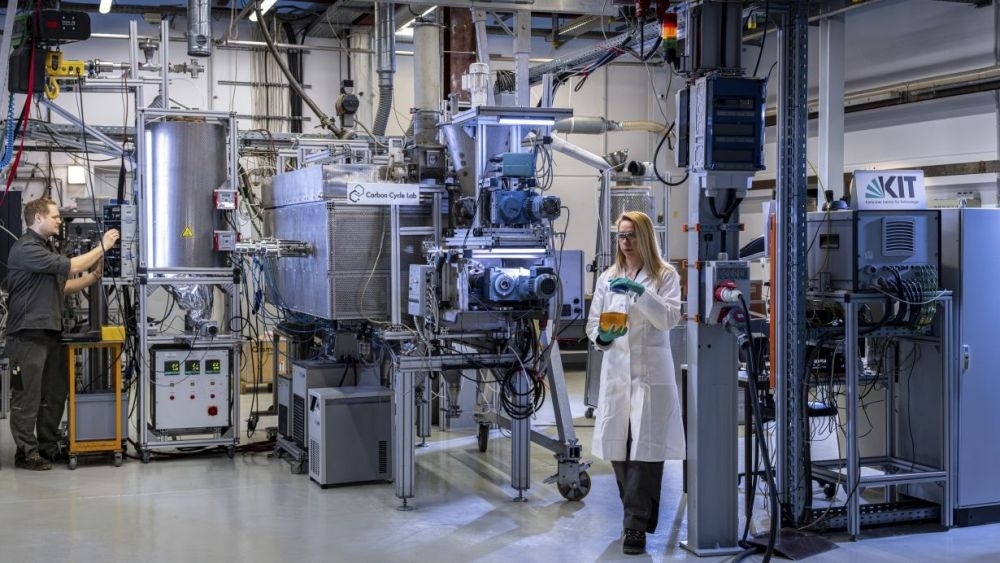
KIT demonstrates technologies for circular economy at pilot scales.
Press release 13/25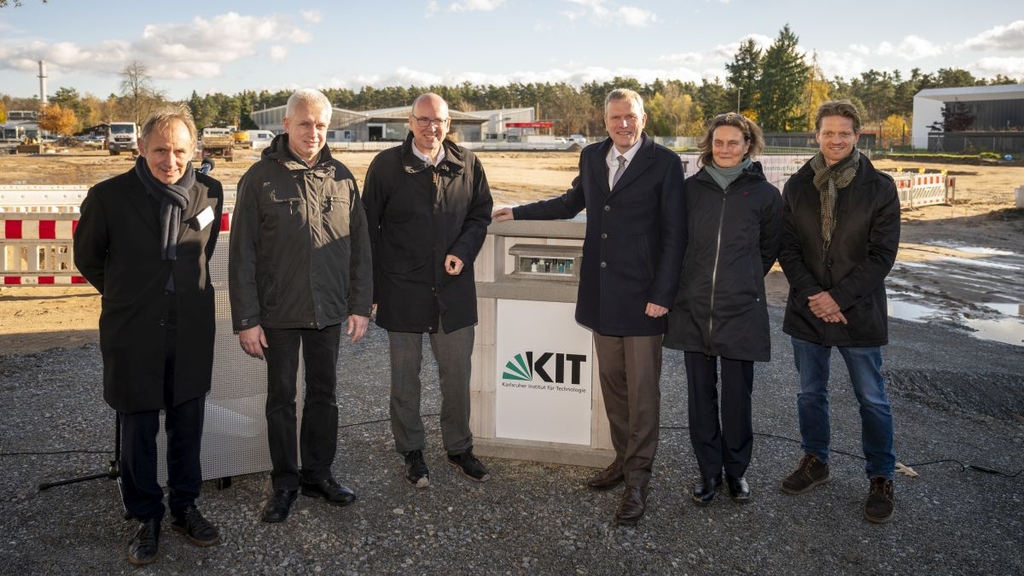
With the laying of the cornerstone on Nov 20, 2024, the KIT celebrated the start of construction of a new research building for the Institute for Catalysis Research and Technology (IKFT) at KIT.
KIT news in German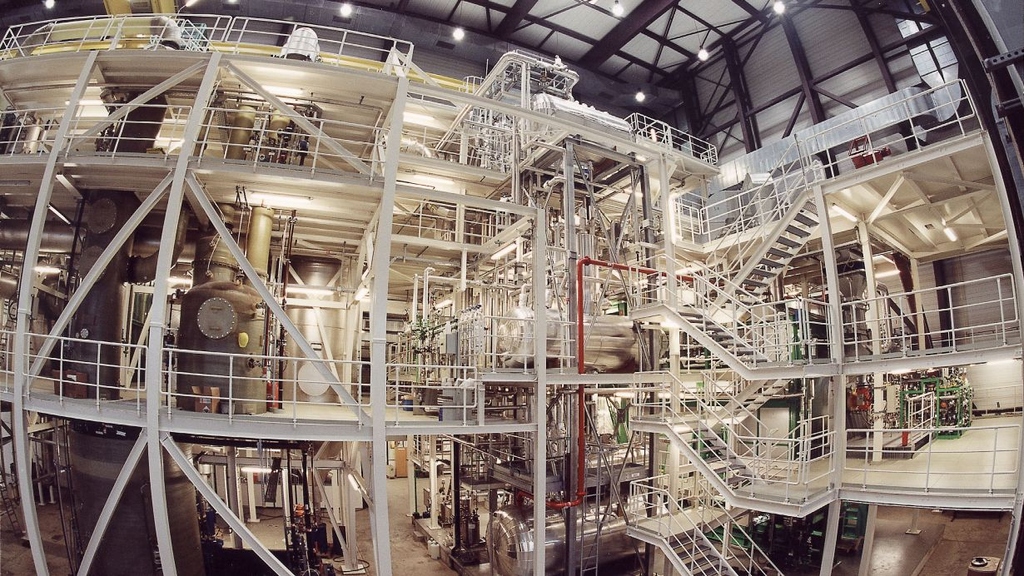
At KIT's BRENDA incinerator, researchers are testing whether and to what extent PFAS are released into the environment during waste incineration.
Press Release 078/2024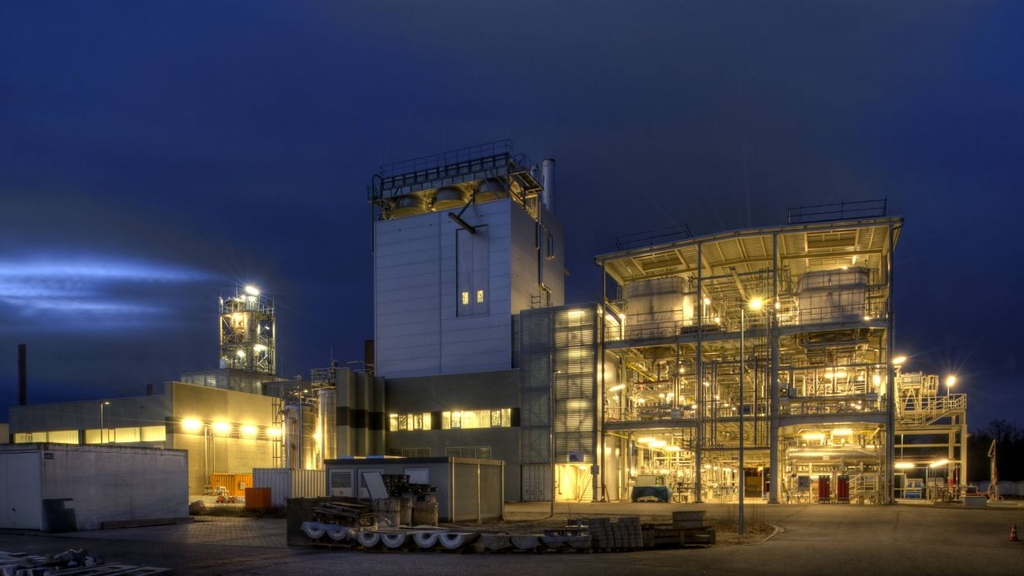
Platform Connects Actors from Academia, Business and Government to Create Synergies and Confront Challenges
Press Release 071/2024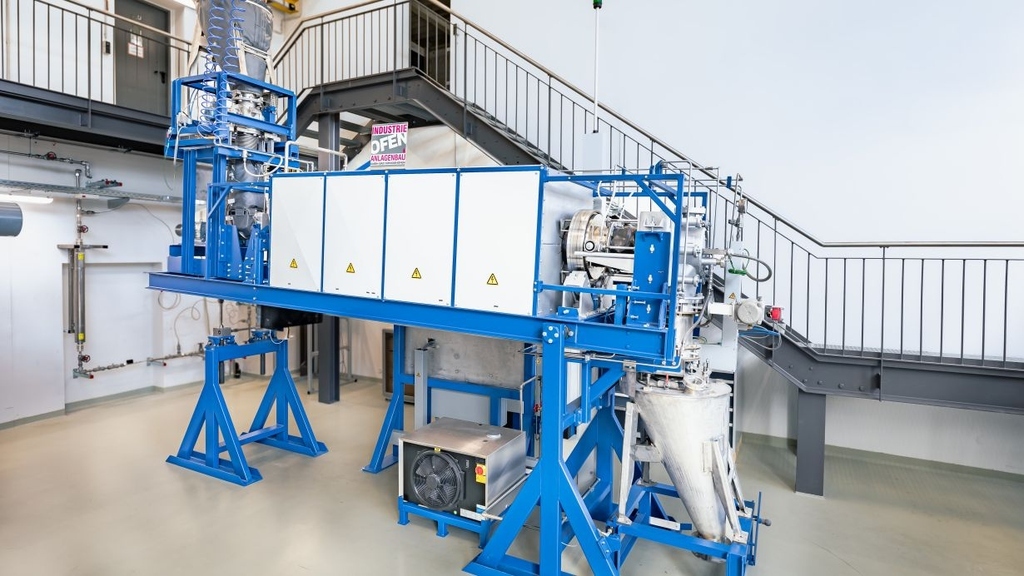
KIT reaches milestone in the development of a greenhouse gas-free circular concrete
KIT news in German
From Net-Zero Circular Concrete to Heat Transfer with Liquid Metals to sustainable batteries: KIT will present highlights from technology development from April 22 to 26 in the Future Hub and at the Energy Solutions.
KIT news in English
Girls' Day on April 25 for girls starting from 5th grade with insights into our work, research and laboratories, e.g. the Battery Technology Center - registration by April 18
KIT news in English
at the HAWK in Göttingen took place with active KIT participation. It was 2 productive days filled with networking and the opportunity to exchange the latest findings and research results in the field of bioenergy.
DOC23 website
Significant Contributions in the Field of Applied Superconductivity (Sept. 11th 2023) for her contributions to numerous high temperature temperature superconducting first-of-a-kind applications. Congratulations!
Scroll down the page a little
Fast growth or long-term cooperation – Depending on the biochar fertilizer, plants in symbiosis with mycorrhizal fungi react molecularly quite differently. Read the Paper!
KIT news in German
Mr. M.Sc. Julian Dutzi for his master thesis on "Further development of the process of biomass gasification in supercritical water with the focus on increasing the gasification efficiency" endowed with 1,000 €. Congratulations!
KIT Stiftung
Alliance of science and industry designs processes and demand scenarios for mass production of synthetic fuels - Federal government provides funding of around 7 M euros. Project „Refineries for Future“ (REF4FU)
KIT news in German
InnoFuels: Alliance of science, industry and politics links promising activities in research, development and application - federal government funds with 5 million euros
KIT news in German
Prof. Sabine Fuss is one of the authors of the 2018 IPCC Special Report on Global Warming of 1.5 °C and held a keynote lecture with the title...
Read more
Representatives from industry, environmental authorities and academia met on March 15-16, 2023 to discuss challenges of material cycles in a circular economy.
Read More!
to learn more about research & key issues related to climate-neutral & energy-efficient circular economy of plastics & Power-to-X technologies.

A framework will be given in a carbon management strategy in 2023. The impulse paper of the Science Platform WPKS provides recommendations for implementation, e.g. BECCS & DACCS.
KIT news in German
Synthetic fuels from renewable energies can be produced in large quantities and can already now be used in almost all vehicles
KIT news in German
MTET scientist involved in UBA study describing a 1st comprehensive technical, legal & organizational recycling concept for rotor blades of wind turbines in Germany.
UBA news in German
New project FINEST MINERAL ADDITIVES develops & demonstrates mixed value chains for mineral & plastic waste recycling in a consortium of HZDR, KIT, HZB, UFZ, TUBAF & Uni Greifswald. HZDR press release
Read more
the Energy Lab 2.0 - the largest research infrastructure for renewable energy in Europe - at KIT's Campus North. Topics: Batteries, power-to-X, regenerative fuels.
KIT news in German
A Retrospective From 2050, 37 authors from all Helmholtz research fields dared to take a fictitious look at the year 2050, a year marked by the successful climate turn-around. >> OA-Paper
LookKIT 02/2022

Bioeconomy! KIT researchers investigate how substitutes for fossil raw materials can be obtained from agricultural waste. Read the Open Access paper in ChemSusChem 2022!
KIT news in German
Energy Efficiency Research for Industry was discussed by 250 participants at the Tagungswerk Berlin organized by accompanying research EE4InG and PTJ on behalf of BMWK.
Industrial Energy Research
3 key topics for 2050s energy system are highlighted by Thomas Jordan, Roland Dittmeyer & Dieter Stapf together with aspects of technology transfer & business start-ups.
Register HERE! JULY 6TH 2022
KIT's startup ICODOS, the Carbon CycleLab & NECOC provide solutions for circular economy of plastics, NET ZERO technology & efficient P2X technogy.
KIT news
International Energy Agency (IEA) 'Direct Thermochemical Liquefaction (DTL)' at IKFT for the coming three years 2022-2024.
About IEA Bioenergy Task34
were key topics of the visit of Harald Ebner, MP and Chairman of the Committee for the Environment, Nature Conservation, Nuclear Safety & Consumer Protection at KIT.

with her work "Microalgae in the electric chair" on energy-efficient extraction of Alge Chlorella proteins using bioelectric methods.
website Foundation Energy & Climate Protection in German
New method developed at KIT: Electrical pulses can be used to extract high-quality nutrients from algae in an energy-efficient way
KIT news in German
chem. recycling of mixed plastic waste - currently non-recyclable on industrial scale. Pyrolysis oil to be used directly in industry. 1st industrial test plant at Industriepark Höchst...
PI Herrenknecht.com
Storage Research Infrastructure Eco-System, the 4 year H2020 project funded by EU Commission is led by KIT. Read the full...Press release
StoRIES website
Supervisors & students of all KIT faculties from energy research are invited to this event to learn about research topics, quali concept, & how to become active ENZo member
more
...shows project results that are important for CO2 neutral Germany up to 2050. Net-Zero-2050 is intended to promote the public & political debate on CO2 neutrality on various levels.
https://atlas.netto-null.org/
9 MTET speakers/co-authors from KIT participate & show how fossil GHG emissions can be reduced to zero in 10-20 years including green H2 technologies.
FVEE website
EE4InG researchers, representatives from BMWi & Projektträger Jülich met for the final meeting at the ETA factory of TU Darmstadt.
More (in German)
...serves qualification of young scientists & offers the opportunity for networking, scientific exchange of the latest results & progress in all areas along the biomass conversion chain.
more
H2Mare, H2Giga, TransHyDE: Research to accelerate production, transport, and utilization of green hydrogen in the MTET program.
KIT news (in German)
Field tests show positive results for exhaust emissions - Life cycle assessment (LCA) shows significant CO2 reduction potential of reFuels
KIT press release (in German)
How we will move from A to B in a CO2-neutral way is a fundamental question for the future. The project "reFuels - rethinking fuels" is one of the building blocks to find a solution.
more
The Special Issue deals with Circular Economy as a key topic in Chemical Reaction Engineering. A study shows how artificial neural networks are used to model the direct synthesis of DME.
more@ Chem. Ing. Tech.
KIT & UHOH research in a joint pilot plant - residual biomass can be refined into new materials & energy sources. The biorefinery farm aims at economic & sustainable tech solutions on site.
more
Process plants of small and medium-sized enterprises could save costs and reduce their emissions with the help of artificial intelligence.
AI methods used @ bioliq facility
Scientists from UFZ Leipzig, FZ Jülich & KIT have presented research results on the bioeconomy to join forces in a network of future activities.
SOMA @UFZ Leipzig
Almuth Arneth, Christine Rösch & Jörg Sauer discussed the contributions of sustainable bioeconomy for a CO2-neutral society.
more @youtube @31:30 min
On 14.04.2021 | 10:30 - 10:55 we will present our most important exhibits on the topic "Energy Solutions" in a live stream. One of them is reFuels with news on renewable fuels (yt in 150s).
What is CO2-neutral mobility?
KIT scientists & Helmholtz colleagues are jointly investigating solar-based production pathways of H2 regarding required pressure & purity of various applications.

Closed cycles: Engineering plastic waste can first be converted into pyrolysis oil and then into new plastic materials.
more
In München soll das längste Supraleiterkabel der Welt realisiert und wirtschaftlich eingesetzt werden. Das KIT ist an dem Projekt beteiligt.
more